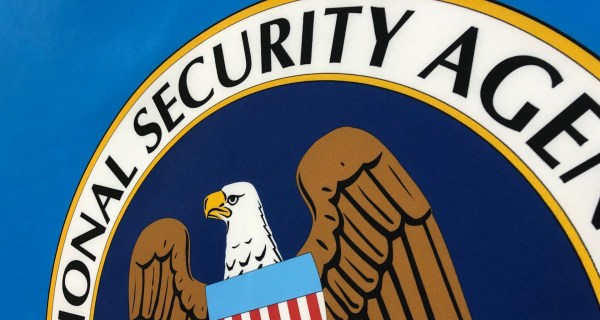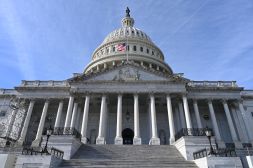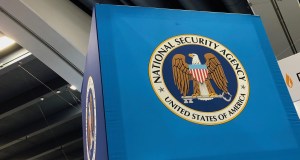NSA leak probe ‘heavy handed,’ says Hayden

A criminal investigation into leaks about alleged contract malpractice at the National Security Agency was “heavy handed” and unnecessary, according to the former NSA chief behind many of the decisions the whistleblowers were trying to expose.
The leaks, in 2005, revealed scathing internal criticisms of a $1.2 billion NSA IT program called Trailblazer, launched at the agency under the leadership of now-retired Gen. Michael V. Hayden, who published his memoir Tuesday.
The ensuing investigation included armed dawn raids on the homes of veteran congressional investigators and agency staff, and ended six years later with the collapsed prosecution of NSA official Thomas Drake under the notorious 1917 Espionage Act.
“To be clear, I had nothing to do with that,” writes Hayden in “Playing to the Edge: American Intelligence in the Age of Terror,” noting that he had left the agency before the leaked reports even appeared in the Baltimore Sun.
“Drake overstepped and the rest of them were a pain in the ass, but that’s hardly grounds to ruin lives,” he concludes of the investigation, which targeted a group of intelligence professionals who complained to an inspector general about Trailblazer. The group included House Intelligence Committee staffer Diane Roark and veteran NSA mathematician and cryptographer William Binney.
Despite his criticism of prosecutors’ legal tactics, Hayden is unsparing in his own assessment of the critics of Trailblazer, calling them a “guerrilla band,” possessed of a “messianic” fervor. And he is harshly critical of their proposed alternative to Trailblazer, a technology project called Thin Thread.
“It was a dispute about technology,” Hayden told FedScoop in an interview. Trailblazers’ critics “turned it into a morality play, and the Justice Department turned it into a felony. Both were wrong.”
Hayden calls the Espionage Act “a heavy and blunt instrument,” and says he was not surprised when the case against Drake — the only person ever charged — finally “collapsed of its own weight” in 2011. Prosecutors had sought to jail Drake for life for betraying secrets under the WWI-era statute, which has become notorious for the way it’s used against leakers. In the end, they accepted a misdemeanor plea to a technical charge of exceeding authorized access to an unclassified government computer.
Drake told FedScoop he doesn’t buy Hayden’s disavowal of the hardball tactics. The reason he felt compelled to go public in the first place was the way Hayden had responded to internal criticism of the program. “I was severely retaliated against as a whistleblower at NSA going through all proper channels,” he said.
“As one of Drake’s attorneys,” said lawyer and Whistleblower rights’ campaigner Jesselyn Radack, “I can tell you Hayden’s fingerprints were all over this case, from the investigatory phase to the prosecution — a nearly 10-year period.”
Indeed, in 2000, after Trailblazer’s critics tried to convince congressional oversight staff of their case, Hayden sent a message to the entire agency workforce. In his memoir, he describes it as “simultaneously angry and careful.”
“Some individuals, in a session with our congressional overseers, took a position in direct opposition to one that we had corporately decided to follow … Actions contrary to our decisions will have a serious adverse effect on our efforts to transform NSA, and I cannot tolerate them.”
In his memoir, Hayden goes on to say that he believes the leak “was a matter better handled administratively, like revoking clearances for example.”
Radack rejects that, charging Hayden is saying “he would have only retaliated against whistleblowers using career-ruining administrative measures.”
“The message [from Hayden] is: ‘Better to retaliate quietly, internally,'” she said. “No wonder so many NSA sources to the [inspector general] feared retribution for telling the truth.”






